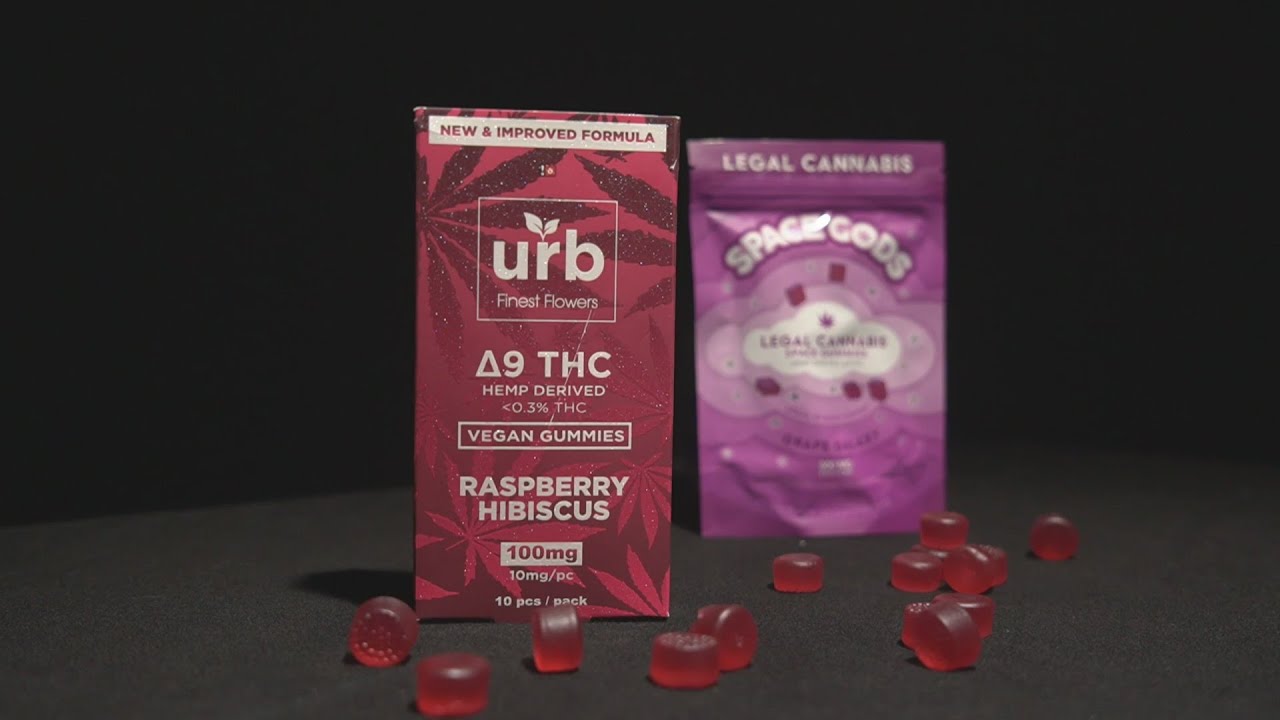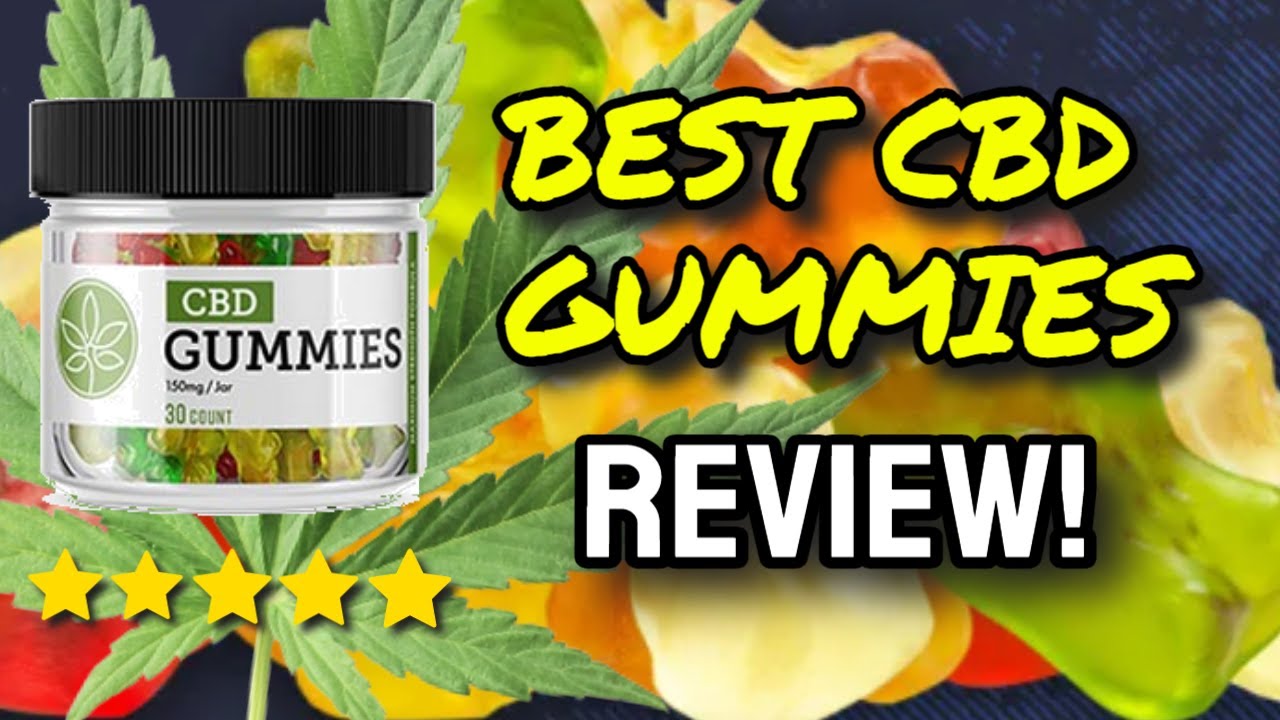Cbd Products From Oils Vaping Pens Edibles Gummies And More
Thc Gummies With Cannabis
The Doctors discuss how more than 37 million Americans smoke and share that people who are given a financial incentive are the most successful at quitting the habit. Subscribe to The Doctors: http://bit.ly/SubscribeTheDrs Like us on Facebook: http://bit.ly/FacebookTheDoctors Follow us on Twitter: http://bit.ly/TheDrsTwitter Follow us on Instagram: http://bit.ly/InstagramTheDoctorsTV Follow us on Pinterest: http://bit.ly/PinterestTheDrs About The Doctors: The Doctors is an Emmy award-winning daytime talk show hosted by ER physician Dr. Travis Stork, plastic surgeon Dr. Andrew Ordon and OB-GYN Dr. Nita Landry. The Doctors helps you understand the latest health headlines, such as the ice bucket challenge for ALS and the Ebola outbreak; delivers exclusive interviews with celebrities dealing with health issues, such as Lamar Odom, Teen Mom star Farrah Abraham, reality stars Honey Boo Boo and Mama June, and activist Chaz Bono; brings you debates about health and safety claims from agricultural company Monsanto and celebrities such as Jenny McCarthy; and shows you the latest gross viral videos and explains how you can avoid an emergency situation. The Doctors also features the News in 2:00 digest of the latest celebrity health news and The Doctors’ Prescription for simple steps to get active, combat stress, eat better and live healthier. Now in its eighth season, The Doctors celebrity guests have included Academy Award Winners Sally Field, Barbra Streisand, Jane Fonda, Marcia Gay Harden, Kathy Bates and Marisa Tomei; reality stars from Teen Mom and The Real Housewives, as well as Kris Jenner, Caitlyn Jenner, Melissa Rivers, Sharon Osbourne, Tim Gunn and Amber Rose; actors Jessica Alba, Christina Applegate, Julie Bowen, Patricia Heaton, Chevy Chase, Kristin Davis, Lou Ferrigno, Harrison Ford, Grace Gealey, Cedric the Entertainer, Valerie Harper, Debra Messing, Chris O’Donnell, Betty White, Linda Gray, Fran Drescher, Emmy Rossum, Roseanne Barr, Valerie Bertinelli, Suzanne Somers; athletes Magic Johnson, Apolo Ohno and Danica Patrick; musicians Tim McGraw, Justin Bieber, Clint Black, LL Cool J, Nick Carter, Kristin Chenoweth, Paula Abdul, Gloria Gaynor, La Toya Jackson, Barry Manilow, Bret Michaels, Gene Simmons and Jordin Sparks; and celebrity chefs Wolfgang Puck, Guy Fieri and Curtis Stone.
Cbd Gummies Australia Navigating Australia's Cannabis Candy Conundrum
Learn more and ask questions, does cannabis save lives, does hemp oil cure cancer, what is the truth. Is cannabis something to fear or embrace, Can Hemp really help save our future?
New Cbd Gummies Review 10mg Each Less Than 3 Thc
Existem diferentes tipos de óleo de cannabis venha conhecer qual seria melhor para seu tratamento. Dentre os tipo de óleo temos o CBD isolado, o Broad Spectrum e o Full Spectrum. Você sabe qual é a diferença? Assista este vídeo até o final e descubra. Se tiver dúvidas deixe nos comentários. Faça sua Consulta Online com um Neurologista especialista agora! Sabia que você pode agendar uma consulta online comigo? Clique no link abaixo e escolha seu horário. https://www.dramarianamoscovich.com.br Você também pode me encontrar ↴ Facebook ☛ https://www.facebook.com/marianamoscovich Instagram ☛ https://www.instagram.com/marianamoscovich/ Conheça o meu site ↴ https://www.dbsexpert.com.br Inscreva-se no canal para saber tudo sobre neurologia, parkinson, tremor, distonias, ataxias, cirurgia de estimulação profunda e muito mais.
Cannagreenz Cbd Gummies Canada Reviews Full Spectrum Best Gummies Where To Buy Price
Understanding the Basics of CBD and THC
The world of cannabis has expanded dramatically over the past few decades, shifting the perception of marijuana from a stigmatized substance to a complex plant with various therapeutic benefits. At the forefront of this evolution are two pivotal cannabinoids: Cannabidiol (CBD) and Tetrahydrocannabinol (THC). While both compounds are derived from the Cannabis sativa plant, they possess distinct properties that significantly influence their utility and legalization across various territories. Understanding these differences becomes crucial for consumers, researchers, and policymakers in navigating the complexities associated with cannabis use.

Cannabinoids, such as CBD and THC, interact with the human body’s endocannabinoid system, a network of receptors and neurotransmitters believed to play a pivotal role in maintaining homeostasis and regulating several physiological functions, including mood, memory, pain sensation, and appetite. However, it’s essential to note that while THC is primarily known for its psychoactive effects, causing the “high” commonly associated with marijuana, CBD is non-psychoactive, which means it does not induce such effects. This fundamental difference sets the stage for their respective applications and societal acceptance.
Both CBD and THC offer therapeutic benefits, but the specific effects and legality of these compounds can vary widely. THC is often used for its pain-relieving properties, but can also lead to alterations in perception and cognition, making it less suitable for all consumers. On the other hand, CBD has gained popularity for its anti-inflammatory and anxiolytic properties without the intoxicating effects of THC, appealing more broadly to those seeking relief without the high. As interest in cannabis continues to expand, a nuanced understanding of these two cannabinoids becomes increasingly vital for informed usage.
The Chemical Structure and Effects of CBD and THC
Cannabidiol (CBD) and Tetrahydrocannabinol (THC) share a similar molecular structure, which is why both interact with the endocannabinoid system in the human body. However, the slight differences in their chemical compositions are responsible for the divergent effects that each cannabinoid induces. Both compounds consist of 21 carbon atoms, 30 hydrogen atoms, and 2 oxygen atoms; the key distinction lies in the arrangement of these atoms and the functional groups attached to their structures. This subtle variance results in differing receptor binding capabilities.
When THC binds to cannabinoid receptors in the brain, particularly CB1 receptors, it triggers a series of neurochemical events that lead to the psychoactive effects users experience. These effects can include euphoria, an altered perception of time, and in some cases, anxiety or paranoia, particularly in larger doses. In contrast, CBD does not bind to the CB1 receptors in the same way. Instead, it appears to interact more broadly with a variety of receptors, including serotonin and vanilloid receptors, which contribute to its anti-anxiety and anti-inflammatory properties. This difference in receptor interaction is crucial in determining the therapeutic potential of each cannabinoid.
The therapeutic effects of each cannabinoid can vary significantly due to their chemical interactions. THC is often utilized for its appetite-stimulant properties, pain relief, and its ability to help with sleep. Conversely, CBD is typically favored for its ability to reduce anxiety, assist with seizures, and offer potential antipsychotic properties. Understanding these biochemical mechanisms is essential for determining the appropriate use of each compound, particularly as research continues to shed light on their respective roles in health and wellness.
Legal Status: Navigating the Regulations Around CBD and THC
The legal landscape surrounding CBD and THC varies widely across regions and jurisdictions, reflecting an ongoing evolution in public policy and perception regarding cannabis. In the United States, for instance, the 2018 Farm Bill legalized hemp-derived CBD at the federal level, provided that it contains less than 0.3% THC, effectively distinguishing legitimate CBD products from those that may be classified as illegal marijuana. As a result, the CBD market has exploded, providing consumers with an array of products ranging from oils and tinctures to edibles and topical applications.
On the flip side, THC’s legal status is far more complicated. Many states have opted to legalize medical and recreational marijuana, allowing THC to be consumed by adults in regulated proportions. However, such laws can vary wildly; what is legal in one state may be illegal in another. In contrast, countries outside the United States have diverse approaches; for instance, Canada has fully legalized marijuana, including both CBD and THC, while other countries maintain strict prohibitions against any form of cannabis consumption.
The legal discrepancies between CBD and THC can impact consumers’ access to health benefits purportedly associated with these cannabinoids. Institutions and industries are undergoing transformations as they adapt to the evolving legal environment, making it increasingly essential for consumers to stay informed about the status of these cannabinoids in their specific regions. Moreover, the challenge of navigating these laws may lead consumers to authenticated sources of information to ensure they remain compliant while accessing the benefits of cannabis.
Potential Health Benefits: Exploring Therapeutic Uses
Both CBD and THC are associated with a myriad of health benefits, albeit through different mechanisms. Research has suggested that CBD may play a significant role in managing anxiety and depression, particularly due to its influence on serotonin receptors. Several clinical studies have highlighted CBD’s potential in reducing anxiety in individuals with social anxiety disorder and generalized anxiety, showcasing its therapeutic implications without the psychoactive effects that THC may impose. Additionally, CBD is recognized for its anti-inflammatory properties, making it an attractive option for those suffering from conditions such as arthritis and multiple sclerosis.

Conversely, THC demonstrates promise for pain management. Its psychoactive effects can counteract the perception of pain, making it a viable option for patients with chronic pain conditions or those undergoing treatments such as chemotherapy, where nausea and appetite loss are prevalent. Several studies have found that THC can enhance appetite and alleviate nausea, contributing to a better quality of life for individuals facing debilitating illnesses. Additionally, some evidence suggests that THC may possess neuroprotective qualities, with potential applications in treating neurodegenerative diseases like Alzheimer’s and Parkinson’s.
Moreover, the entourage effect—a phenomenon wherein multiple cannabis compounds work synergistically—suggests that combining CBD and THC may yield enhanced therapeutic benefits. Patients seeking relief from symptoms of conditions such as epilepsy have reported improved outcomes when utilizing cannabis products containing both cannabinoids. While both CBD and THC can be used individually, their combined effects may result in a more favorable therapeutic profile, underscoring the importance of further research into their synergistic potential.
Side Effects and Considerations When Using CBD and THC
Understanding the potential side effects associated with both CBD and THC is crucial for users seeking to maximize benefits while minimizing adverse reactions. While CBD is generally regarded as safe and well-tolerated, some users may experience mild side effects, including drowsiness, dry mouth, or gastrointestinal disturbances. It’s important for users to consult healthcare professionals before starting any CBD regimen, especially if they are on other medications that could interact adversely. Additionally, the lack of FDA regulation on many CBD products raises concerns regarding product quality and consistency.
In contrast, THC is associated with a range of more pronounced side effects due to its psychoactive properties. Users may experience increased heart rate, anxiety, altered judgment, and potential impairments in motor skills and cognitive function. These effects can pose challenges for tasks requiring full concentration, such as driving or operating machinery. Therefore, those seeking to use THC should be mindful of the dose and potency, opting for lower doses to mitigate potential adverse reactions, particularly if they are inexperienced users.
Moreover, the long-term implications of using THC remain a topic of ongoing research. While short-term benefits may be evident for conditions such as chronic pain, the risk of dependency and the psychological effects of prolonged use warrant consideration. Users must make informed decisions based on their personal health conditions, preferences, and legal regulations. Awareness of both cannabinoids’ side effects, along with consultation from healthcare professionals, is key to navigating the complex landscape of cannabis consumption safely.
FAQ: Addressing Common Queries About CBD and THC
As the public’s understanding of CBD and THC continues to grow, several frequently asked questions arise that highlight people’s concerns and curiosities surrounding these cannabinoids. One common question pertains to the legality of these compounds. As mentioned earlier, while CBD is federally legal when derived from hemp, THC’s legality often depends on state regulations. It’s essential for consumers to be aware of the laws governing these cannabinoids in their regions, especially as legislative changes occur rapidly.
Another prevalent inquiry relates to the safety and efficacy of these substances. While both CBD and THC have undergone various studies, consumers should approach their use with caution. The lack of comprehensive FDA regulations can lead to concerns over product quality, necessitating a keen eye for third-party testing and transparent ingredient lists. Additionally, potential users should consult healthcare professionals to ensure they are making informed choices based on individual health needs.

Lastly, many individuals wonder about the differences in effects between CBD and THC. It’s crucial to recognize that while they stem from the same plant, their psychoactive properties and therapeutic applications are notably different. CBD offers relief without intoxication, making it appealing for those who wish to avoid the high that accompanies THC. Acknowledging these differentiating factors can better equip consumers in their search for the right product to meet their therapeutic needs.
Dreamy Sleep Gummies Vegan Melatoninrich Foryou Fok
How to make sure your grow room is well ventilated. There are three good reasons why you need to make sure your grow room is well ventilated. First, your cannabis plants need a continuous supply of fresh carbon dioxide for photosynthesis. Your plants need carbon dioxide, light and water to convert into food. Second, they also need to respire, to breathe, in order to turn glucose and oxygen into energy to promote growth. Lastly, a stale, musty and humid environment will become a breeding ground for pests and disease. If you are new to growing cannabis, you may not have realized just how much heat your grow lights can give off, especially if you use metal halide or high-pressure sodium lamps. Add to that the amount of water your cannabis plants will sweat into the air as it transpires up from the roots and through the stems into the leaves. To combat this problem, fresh air should come in at the bottom of your grow tent, and stale air extracted from the top. Circulation is most efficient with that set-up as hot and humid air will naturally rise to the top of the grow tent anyway. To calculate the size of extractor fan you will need, you have to calculate the volume of your grow tent, and then buy an extractor fan with the appropriate CFM, which stands for cubic feet per minute. So, if your grow tent measures four foot in length by two feet in width by five feet in height, the volume would be 40 cubic feet and you would need a fan with a 40 CFM rating. You then have the option of installing an oscillating fan to ensure that the whole tent is well ventilated and combine this with a passive air intake vent at the bottom. Alternatively, you can use an active intake vent which incorporates a fan within it which draws a steady stream of air into the tent. If you use an active intake vent with a fan, you need to ensure that the CFM of your intake fan is slightly less than that of your extractor fan, to create negative air pressure in your grow tent. That way you will be able to regulate the temperature, humidity and CO2 levels. Finally, we recommend you attach an active carbon filter to your extractor fan to remove any of the tell-tale smell coming from your plants’ terpenes. Of course this isn’t specific to a “grow tent” and the same theory can be applied to any “grow room” to maximize the plants chances of success, and of course if you enjoyed this video do like and subscribe so you too can become a cannabis expert!
Boost Your Routine With Viral Gummies Selfcare Glowup
OHKISS New Flavour Out 🎉 Shop now at ohkiss.com Vitamin B12 Vitamin B3 #ohkiss ohkiss.com #SoftDrink #EnergyDrink #sparklingdrink
Hazel Hills CBD Gummies: A Natural Step Toward Better Health
🎯 Operazione “Zero Dam” – Missione d’Infiltrazione Tattica In questa missione, la squadra Delta viene schierata nella zona industriale abbandonata di Zero Dam, un tempo un’imponente diga idroelettrica ora trasformata in un campo di battaglia strategico. L’obiettivo è infiltrarsi nella struttura per recuperare dati sensibili e neutralizzare le forze ostili presenti.  🗺️ Ambientazione Zero Dam offre un ambiente complesso con numerosi livelli e percorsi alternativi. I giocatori devono navigare attraverso tunnel sotterranei, edifici in rovina e passerelle sopraelevate, sfruttando la verticalità e le coperture per avanzare senza essere individuati. 🔧 Equipaggiamento Consigliato • Armi Silenziate: Per eliminazioni discrete e senza allertare i nemici. • Visori Notturni: Essenziali per operare nelle zone buie della diga. • Droni da Ricognizione: Per identificare posizioni nemiche e pianificare l’assalto. 🎮 Dinamiche di Gioco La missione richiede un approccio coordinato e strategico. I giocatori devono sincronizzare i movimenti, coprire i compagni e gestire le risorse con attenzione. La presenza di nemici IA e squadre avversarie aggiunge un livello di sfida, rendendo ogni decisione cruciale per il successo dell’operazione. #DeltaForceMobile #DiscoveryMobile #ZeroDamMission #TacticalGameplay #DeltaForceOps #InfiltrazioneTattica #MobileShooter #OperazioneSegreta #GameplayMilitare #StrategiaMobile
Sleep Better Tonight With Dreamy Sleep Gummies Melatonin
Today we will assemble Delta's new 36-6020 10" Portable Table Saw with stand. You can find it here: http://amzn.com/B00V7UHBAY
Wyld Sour Apple Sativa Gummies
Safer CBD announced the release of new high-quality CBD hemp products for people and pets. Customers are invited to get these delicious broad-spectrum hemp derived CBD gummies to find relief from anxiety, joint pain, backaches, muscle pain, insomnia, and panic attacks. These high-quality CBD gummies can be purchased at an affordable price at https://safercbd.com/product/cbd-gummies-125mg/ CBD products are becoming increasingly popular as an effective source in treating pain, sleep deprivation, appetite, inflammation, and other medical conditions. It is expected that the CBD market should continue growing in the coming years as more and more people discover the numerous health benefits of using CBD products. Safer CBD offers a wide variety of products with the purest, full-spectrum CBD on the market. Their CBD tinctures, gummies, creams, oils and balms have all the beneficial calming properties of cannabis without the high. A spokesperson for Safer CBD explained: "CBD gummies provide a fun and convenient way to enjoy the wonderful benefits of CBD. Unlike cannabis CBD (which contains amounts of THC - the chemical that is attributed to a euphoric feeling), Safer CBD gummies are made from broad-spectrum hemp oil. Taking hemp-derived CBD does not elicit the same “high” feeling that THC does." CBD gummies can be a great way to relax, relieve pain and calm your thoughts to stay focused. These great-tasting gummies come in a variety of flavors, including black cherry, lemon/lime, citrus, red apple and more. They taste delicious and are available in a variety of strengths. Here is one woman’s experience with using CBD gummies to manage anxiety and improve her sleep: "These CBD Gummies are now a part of my routine. I take one or two during the day when I am feeling overwhelmed or stressed, and one when I am having difficulties falling asleep. They taste fantastic, find relief within 20-30 mins after use." More information about the CBD hemp-based products by Safer CBD are available at https://safercbd.com/























